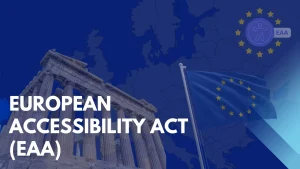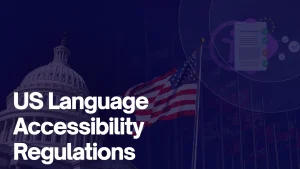Legal translation refers to accurately converting a legal document from one language to another without losing the original context and legal meaning of the content. It differs from that of general translations based on the difference in the content.
Legal translations are mainly focused on content that is legally binding in nature which may include legal contracts, immigration documents, wills, real estate documents, intellectual property agreements among various others.
Increasing globalization of cross-border business transactions is leading towards the increasing need for legal translations. Expansion of businesses globally requires global contracts. These contracts are faced with the challenges of language barriers and legal differences. Hence, certified legal translations play an integral role while maintaining the original meaning of the content.
While accurate legal translations allow contracts to be clear and enforceable, inaccuracy in legal translation can lead to misunderstandings and legal consequences to bear with.
Ensuring Clarity in International Contracts
Have you ever thought about how international contracts are understood around the world? When it comes to understanding international contracts, clarity is one of the crucial aspects for a way forward. This, however, is challenging keeping in mind the different cultural backgrounds of the parties involved and hence, the language barriers involved.
Therefore, accurate legal translations play a vital role to ensure clarity in international contracts. Certified legal translation is often necessary to ensure precision and compliance with legal standards. This involves accurately translating the legal documents into the required language without altering the original intent and meaning of the content. Inaccurate legal translations may result in serious consequences leading to misunderstandings and international disputes.
In addition to this, accurate legal translations do not just involve word to word translations but also the preservation of the meaning and intent of the content within the contract subject to cultural nuances. The legal terminologies may differ from one culture to another depending on the context therefore, legal translations are complex in nature and must be accurately translated and effectively eliminate the language gap to avoid any complications in the future.
Maintaining Compliance with Legal Requirements
Legal translations are complex and hence, require a deep understanding and knowledge of legal terminology to ensure accurate and certified translations. Unlike other types of translation, legal documents must navigate the intricacies of various legal systems, each shaped by individual cultural nuances and other factors. International contracts, in particular, must comply with the specific laws and local standards of each country involved to protect their businesses and avoid serious legal consequences.
Corporate legal departments often require legal translation services for managing contracts, compliance documents, and intellectual property materials. Inaccurate legal translations may lead to risks posed with noncompliance with respect to legal requirements. These risks may include heavy penalties and fines, reputational damage, access to markets and product delays and can also result in the organization being driven out of business.
The Role of Professional Legal Translators
Legal translators do not just translate but are experts when it comes to legal terminology and the complexities with respect to the legal matters. Certified translation is often required for various legal documents such as marriage certificates and contracts. They are skilled in translating the legal content from one language to another with clarity therefore, without the literal or legal context being altered.
Expertise in Legal Terminology
In order to deliver accurate and precise legal translations, legal translators maintain a formal tone in the documents while also utilizing active voice appropriate to the legal content. Their expertise in the legal domain and understanding of the legal system are integral to avoid misunderstandings. Their cultural awareness also allows them to take cultural nuances into account during translation.
Additionally, legal translators work on staying updated with existing as well as emerging legal terminologies. They must accurately transfer legal information from a source text into the target language, understanding the legal nuances and cultural conventions that may not have direct equivalents. They maintain a consistent style guide ensuring uniformity. Eventually, proofreading is a critical step that they perform to ensure no errors have been made.
Conclusion
It is essential to invest in professional legal translation services for businesses to function globally. TransLinguist offers access to the best-trained and certified professional legal translators who work in all time zones ensuring a one-stop solution to all your assignments around the world. Our top-notch legal translators are experienced and ensure the highest level of accuracy and compliance for your international contracts and legal documents.
TransLinguist is your stop to the best quality legal translations. Contact our team today to learn more about our services and how we can assist you.



